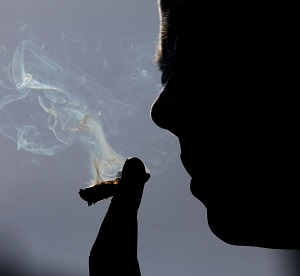As the world grapples with the impact of the novel coronavirus, daily interaction with the outside world --- public and retail spaces, restaurants, educational institutions, and even with each other has been and will continue to be reoriented prioritising personal hygiene and public health.
The sensibilities are building towards and leading to major changes in how the country's food service industry is expected to operate.
Based on a recent consumer survey by restaurant tech platform, Dineout, Indian diners are now ranking safety assurances and premier hygiene as top factors when it comes to choosing a restaurant to dine in.
The survey by Dineout conducted across 20 cities revealed that in a post-COVID-19 era, 81 per cent diners will prefer digital menus at restaurants, while 77 per cent of people will continue to want to dine out.
The survey found that 23 per cent people would prefer continuing with delivery/takeaway and online payment becomes the most preferred option with 60 per cent votes.
Diner's response to Contactless Dining:
Over 96 per cent demand better waitlist management
81 per cent consumers would rather scan a QR on their phone to place an order instead of handling physical menus or tablet-based digital menus.
After a dining experience, 60 per cent prefer seamless wallet-based digital payments over cash/cards 85 per cent would choose a digital valet over waiting in possibly contaminated public spaces and 84 per cent would prefer offering digital feedback over physical feedback collection.
What do people want to eat?
The report also revealed that most of India has been craving Pizza since the lockdown, except in Chennai, Hyderabad and Kolkata where their popular and indigenous Biryani recipes reign supreme.
Which restaurants are diners waiting to go to?
77 per cent respondents claimed that they are waiting to dine out with friends and family once the lockdown is lifted.
Big Chill, Barbeque Nation and Social emerged as favourites in Delhi, while Mumbaikars picked Global Fusion, Poptates and Asia Kitchen. Bangaloreans miss going to pubs like Toit, Vapour and Barbeque Nation.
Aminia, Arsalan and Momo I Am emerge as the top picks in Kolkata.
Contrary to popular belief, Delhitties picked vegetarian over non-vegetarian food.
Bangaloreans and Lucknowis would rather have their drinks over food.
Besides the new parameters for restaurant selection, the factors deciding consumer delight have also seen a major overhaul as hygiene takes precedence. Consumers would prefer that the total number of reservations in a certain period be limited with the option to pre-select the seating, ample amounts of sanitisers at tables along with UV sanitised utensils whenever possible.
Hygiene ratings with detailed hygiene information, regular hygiene checks & usage of mask and disposable gloves by waiters are likely to be the new standard, with diners expecting service personnel to sanitise tables & chairs after every use.
Dineout recently unveiled the �contactless dining suite' to help restaurants survive and thrive in a post-COVID-19 world. The brand will also provide PPE Safety Kits to Restaurants to help ensure hygiene measures and is facilitating COVID free certification for restaurants through a licensed lab to ensure all microbiological tests are in place before restaurants restart post the lockdown.







Comments
Add new comment